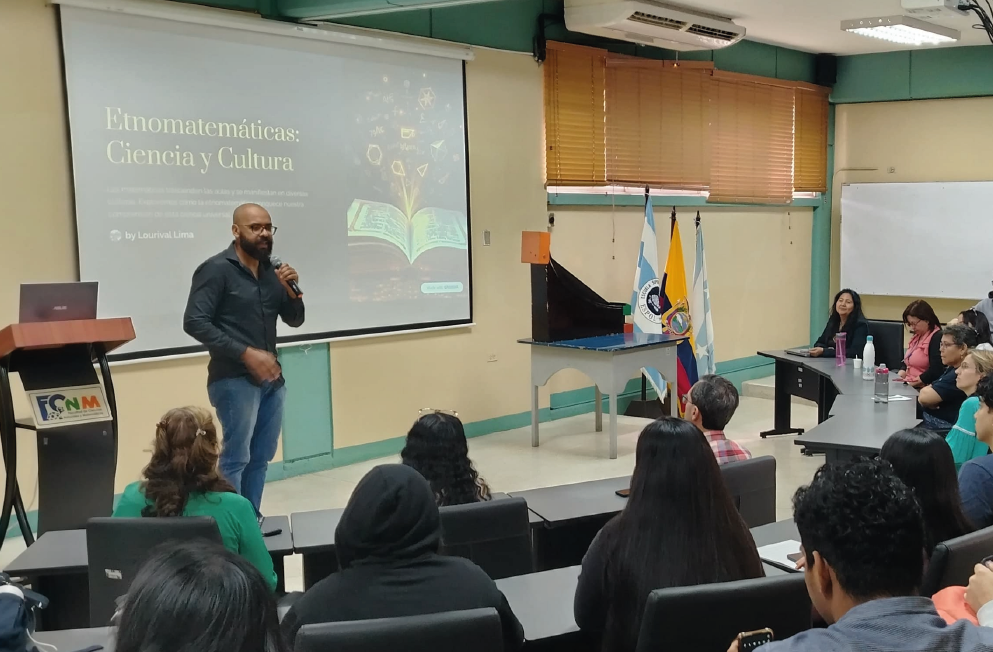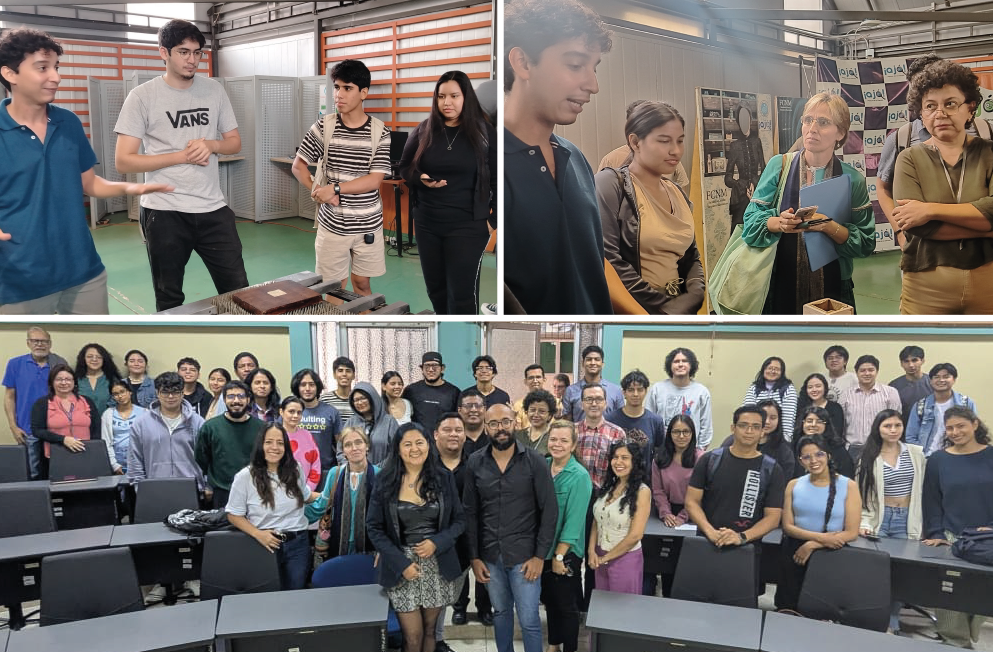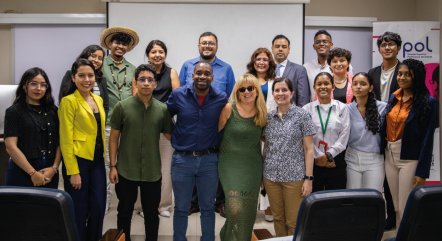
A space to look at mathematics with different eyes. This was the practical workshop on Ethnomathematics and Ancestral Knowledge, an interdisciplinary experience organised by the Faculty of Art, Design and Audiovisual Communication (FADCOM) with the collaboration of the Faculty of Natural Sciences and Mathematics (FCNM) of ESPOL.
The event explored how native cultures intuitively applied mathematical concepts to their everyday practices, revealing a science deeply connected to art, design and life. The day began with the official presentation by María de los Ángeles Custoja Ripoll, who introduced the special guest, Brazilian professor Lourival Rodrigues.
His keynote address dealt with the way in which ancient communities - without knowing it - used geometry, algebra and calculus in their daily lives. Ethnomathematics, he explained, makes it possible to rescue this knowledge and turn it into tools for a more ethical, inclusive and intercultural education, as well as contributing new perspectives to the history of science. The event took place on Friday, June 6th in the Pedro Franco Dávila Auditorium, on the Gustavo Galindo campus of ESPOL, with the participation of around 50 people.

Afterwards, the participants went to Ajá Park, where they took a practical tour to see how mathematics is present in the environment and in everyday life, beyond the classroom. This workshop, linked to the projects of linking with society, seeks to re-signify traditional knowledge, generate respect for ancestral knowledge and promote an educational approach where culture and science do not compete, but rather mutually enrich each other.
The collaboration between FADCOM and FCNM presents that the crossings between disciplines open paths for a more inclusive, critical and humane university. This type of activity will continue to strengthen the dialogue between science and culture, training professionals with a broad outlook, social commitment and purposeful creativity.
© Photography: Courtesy / Written by José Luis Castro




